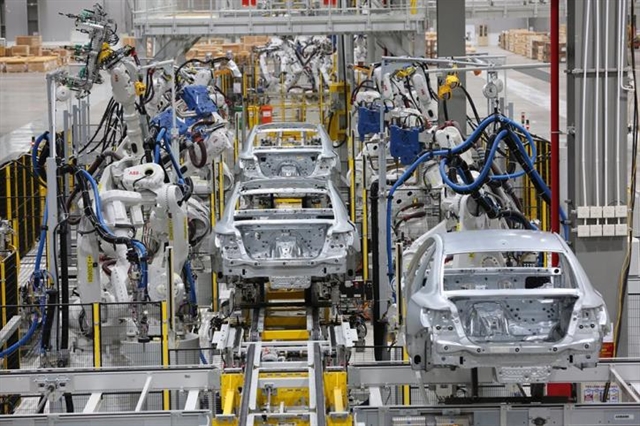Artificial Intelligence (AI) technology has advanced at lightning speed over the past decade and has become the hot topic of many domestic and international seminars. But the question remains; how to boost the development of AI companies in Viet Nam?

Artificial Intelligence (AI) technology has advanced at lightning speed over the past decade and has become the hot topic of many domestic and international seminars. But the question remains; how to boost the development of AI companies in Viet Nam?
AI has penetrated deeply into many fields with different applications, such as multilingual translator devices, virtual assistants and self-driving cars.
During the social distancing caused by the COVID-19 pandemic, the use of AI in Viet Nam has gotten more attention in customer care and medical services to reduce direct contact, which helped boost many startups in high technology.
And Professor Vu Ha Van, Scientific Director of VinBigdata Institute under Vingroup, believes Viet Nam has good conditions to build AI systems and it will be possible to apply the technology widely in local production in the future.
After three years of operations, the institute has achieved many good results. Vinfast cars, which have made headlines around the world in the last month, are the most notable example. The cars are equipped with a voice assistant system in English, German and Vietnamese, and can even tell a joke to drivers.

“I lead a unit that has a clear vision to bring AI technology to Viet Nam as a useful tool and for people that can benefit from it,” Professor Van said at the Future of AI talk, a part of Science for Life symposium during the VinFuture Sci-Tech Week.
It requires clean data and talented people to build an AI system, and Viet Nam have both of these two factors, Professor Van confidently said.
“Even though Viet Nam is a developing country, we have an abundance of these two things.
“I find in Viet Nam it is easier to collect, clean and label data than in many other countries.
“And also the Vietnamese young people are very well educated in mathematics. So they have a good background to go into machine learning and things like that.”
Professor Bui Hai Hung, director of VinAI Research, under Vingroup, also agreed on the bright future of AI in Viet Nam.
“VinAI, in the beginning, was an experiment. I wondered 'can we actually build a world-class AI research lab in Viet Nam, a developing country?',” Professor Hung said at the Future of AI talk.
“At that time, I wasn't even sure myself whether this experiment is going to be successful because AI is dominated by the likes of Google, Facebook, Microsoft and big companies, especially in Silicon Valley.
“Three years later, I think we can safely say that VinAI is now an established world-class AI research lab.
“And we actually benchmark ourselves against all the other top research labs according to the exact criteria that they are using.”
The professor added that Viet Nam has many young talents who are working hard and are really capable of contributing to world-class research.
With such potential, Vietnamese startups in the technology field can continue to thrive in the future and can create high-value products for local customers. — VNS





